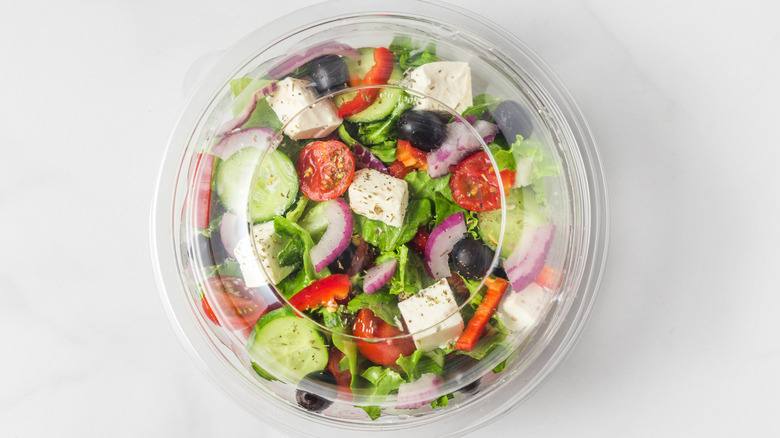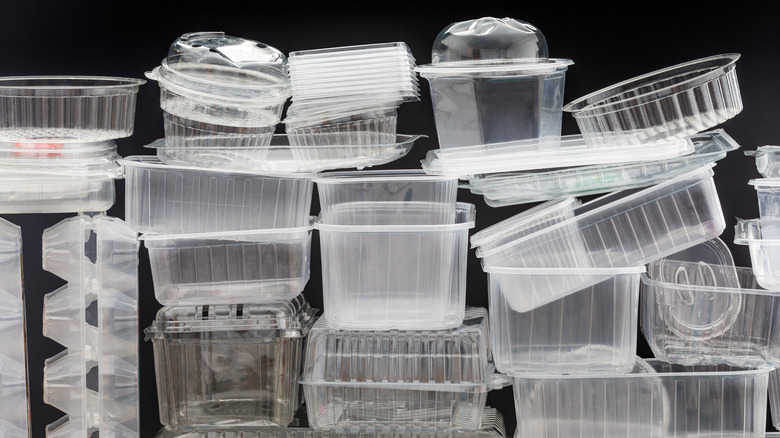How Food From Plastic Containers Really Can Affect Your Health
If you open your pantry and are faced with shelves lined with canned foods, Tupperware, disposable sandwich baggies, and a stack of plastic take-out containers, it's time to reconsider your food storage habits. Many of the plastic packaging in your pantry likely contains the controversial industrial chemical known as Bisphenol A (aka BPA).
In spite of a slew of reusable water bottles and other plastic food storage containers that claim to be BPA-free, the chemical is still widely used in the United States. It is commonly found in canned goods, water bottles, and the containers that store some of our favorite foods (via Healthline).
Concerns over the harmful health effects of BPA stem from research that proved it to be an endocrine disruptor, meaning that it negatively affects the body's hormones. It's been linked to a host of health problems — including developmental problems in infants and young children — as well as diabetes, cancer, heart disease, and obesity in adults. Worse yet, a study found that high levels of BPA were linked to a 49% increase of death from all causes over a 10 year period (via CNN).
Using containers made from non-plastics can help
Avoiding exposure to the harmful effects of BPA isn't as simple as just switching to a BPA-free water bottle. There are a lot of unknown factors surrounding plastics and their impact on the food we eat, making it difficult to know what container products are safe. Dr. Leonardo Trasande, the director of the Center for the Investigation of Environmental Hazards at NYU's school of medicine, put it this way.
"There is sufficient evidence that exposure to these chemicals is problematic," Trasande said, before conceding that there are a lot of plastics in the world that could be hazardous — we simply don't know which ones. "[The] 'known knowns' are the ones I'm going to gravitate to in terms of concern. The reality is there are many 'unknown unknowns' ... that may be as problematic" (via The Guardian).
Thankfully, there are several easy steps you can take to reduce exposure to BPA and related chemicals. First off, use less cans. Although some canned food manufacturers have promised to remove BPA from their cans, it is still a significant source of chemical in many diets. Trasande noted that "avoiding canned food is the most effective way to reduce your bisphenol exposure" (via The Guardian).
Avoiding high temperatures can also help, since studies have found that BPA is drawn out from plastic containers a whopping 55 times faster in hot, compared to normal, conditions (via Scientific American). Alternately, try avoiding plastic food containers as much as possible, opting for glass, ceramic, or stainless steel containers instead.

